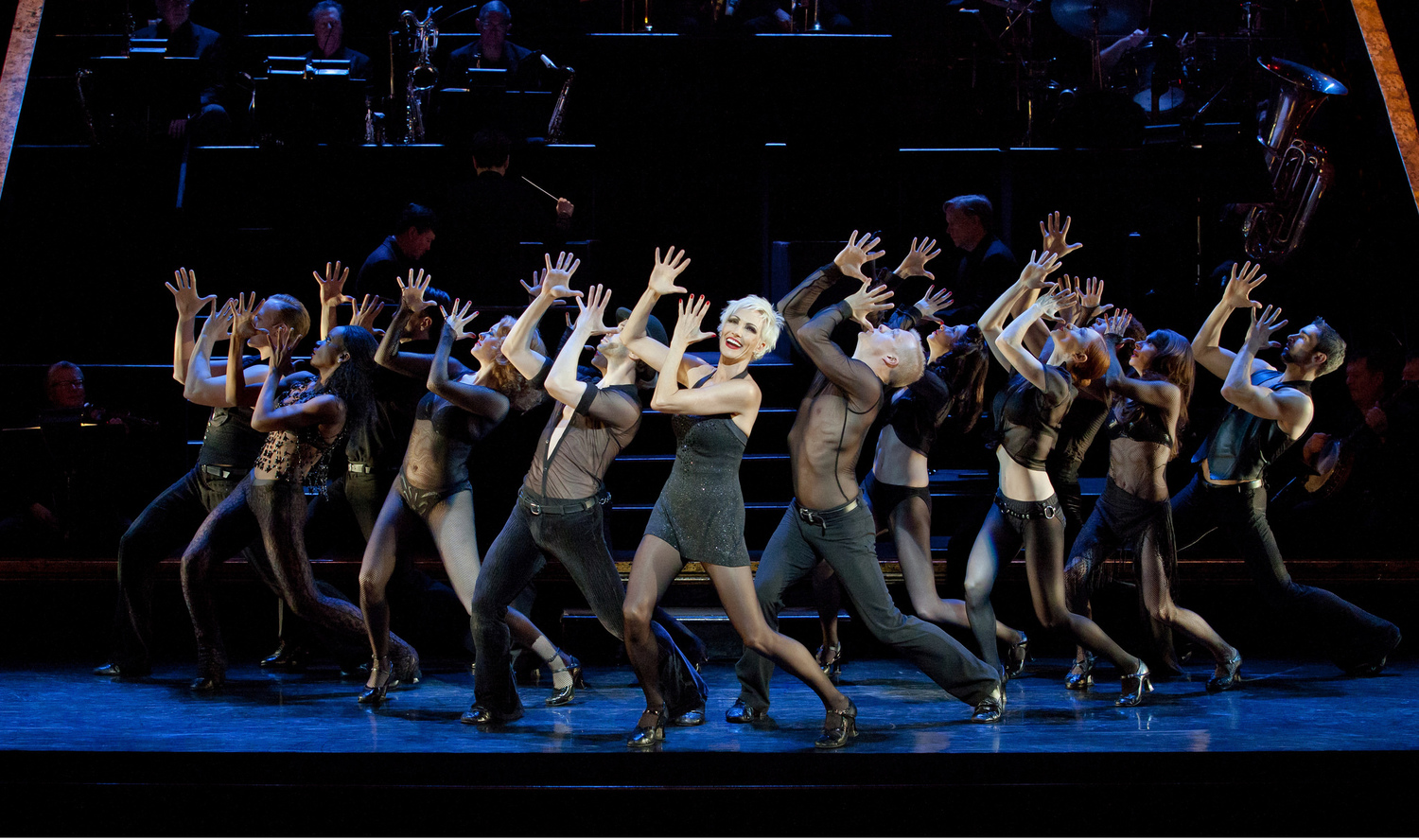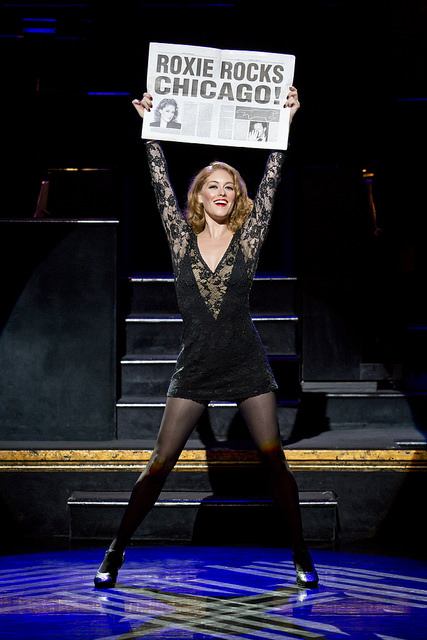Review: CHICAGO BRINGS MAGIC to Straz Center

With the orchestra artfully led by Andrew Bryan, a packed house was mesmerized as the familiar jazz notes brought Velma Kelly (Amra-Faye Wright) to stage for the return of Chicago to the Straz Center. The black form fitting, even transparent, costumes by William Ivey Long and re-creation of Bob Fosse's original choreography by David Bushman razzled-dazzled the appreciative crowd.
Though the orchestra pit took up a substantial amount of the stage, it fit in seamlessly as a working set piece and the story relied on the talents of the actors, rather than lavish sets.
Set amid the roaring 20s, Chicago tells the tale of Roxie Hart (Dylis Croman), a philandering wife and nightclub dancer who kills her lover when he threatens to walk out on her. She manipulates her husband, the public and the media, dupes her rival cell mate, Velma and gets herself Billy Flynn (Peter Lockyer), Chicago's slickest criminal lawyer to prove "they both reached for the gun."
Velma is unceremoniously usurped from being the tabloid favorite and Velma and Roxie vie for career-infusing top billing in the Chicago papers.
Though every performance hits the mark, and its stars and lively ensemble shone like the golden tinsel backdrop that descended in the final number, there were several standouts.
The opening number "All That Jazz" was powerfully performed by Amra-Faye and ensemble.
"Cell Block Tango" is and will always remain my favorite song in the production. Though I missed the illusion of prison bars, the single lights that illuminated each of the murderesses still lent a certain ambiance to the musical number.
"When You're Good to Mama" and "Class" showcased the beautiful and powerhouse vocals of the brashy and sultry Matron "Mama" Morton (Jennifer Fouche).
"We Both Reached for the Gun" brought rounding applause with Peter's impressive

and literally breath-taking hold of "the" in the final notes of the song. I don't think the register that reporter Mary Sunshine (D. Ratell) hit existed before that performance. Mary was a pleasant, and shocking to some, surprise later in the second act.
Special mention goes to Paul Vogt as Amos Hart, believable as Roxie's unappreciated, downtrodden husband. "Mr. Cellophane Man" received sympathetic "awws" from the audience.
The applause at the end of every number and the standing ovation after the finale proves you don't elaborate props or set pieces to make an exciting production. Follow the original choreography of Bob Fosse and even over forty years later, Chicago is still as relevant and magical as its debut in June 1975.
Chicago will play the Straz Center's Morsani Hall, through Sept. 23. Performances are Tuesday - Thursday at 7:30 p.m., Friday at 8 p.m., Saturday at 2 and 8 p.m. and Sunday at 2 and 7:30 p.m. Tickets are $3-$85 and may be purchased by calling 813.229.STAR at the Straz Center Ticket Office or online at www.strazcenter.org.
.
Reader Reviews
Videos

